As Stephen King once said, “Books are a uniquely portable magic,” and that, “If you don’t have time to read, you don’t have the time (or the tools) to write. Simple as that.”
As writers ourselves — though none of us anywhere near as renowned as Mr. King — we agree that writing well requires being a voracious reader. How else are you going to learn? To get you moving, we’ve gathered a handful of books that will open your writer’s eye and exist as indispensable resources for years to come.
As with this summer’s guide to great reads, I will list each book’s respective formats and current prices rounded up to the next dollar.
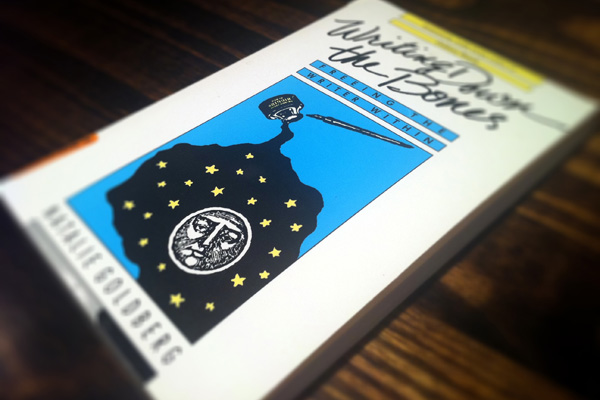
Writing Down the Bones: Freeing the Writer Within by Natalie Goldberg.
Writing Down the Bones by Natalie Goldberg »
Reading Natalie’s book is a lot like sitting in on a Q&A session where people ask all the right questions and she gives all the right answers.
You don’t have to read the book front-to-back. The chapters are short and fast and can be read completely out of order because each one is its own nugget of advice or food for thought. And quickly, Natalie begins to feel like a trusted friend — someone who’s not afraid to shoot it straight and has nothing to hide.
While another favorite of ours, The Little Red Writing Book, will tutor you on how to write better, Writing Down the Bones will help you to become a better writer. There is a difference.
- Paperback ($12)
- Hardcover ($13)
- Kindle format ($10)
- iBooks format ($12)
- Audiobook (digital) ($20)
- Audiobook (CD ($45)
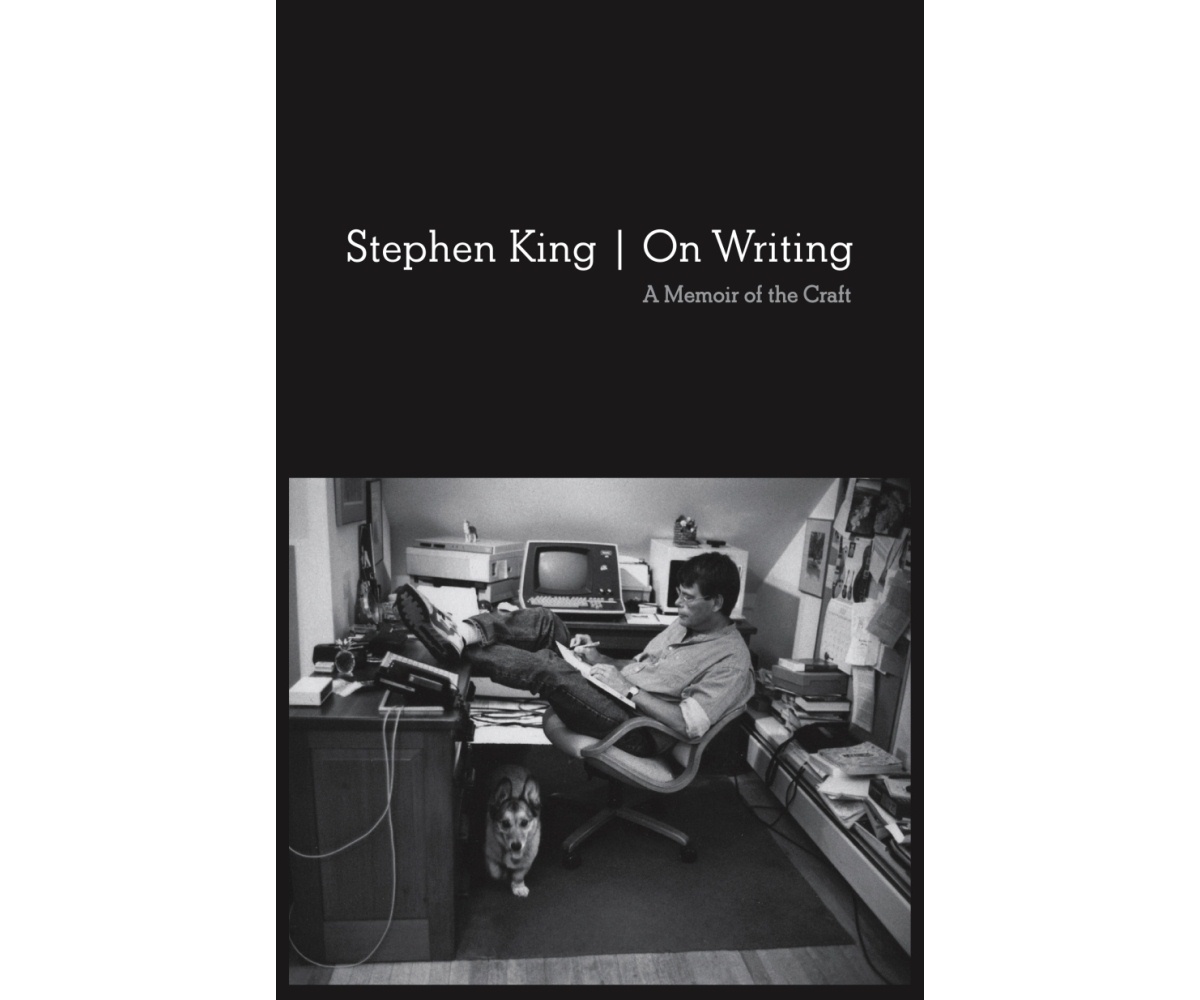
On Writing: A Memoir of the Craft by Stephen King.
On Writing by Stephen King »
Stephen King’s On Writing: A Memoir of the Craft is one of those books I’d always seen recommended by other writers, but I didn’t get around to reading it for a long time. When I finally had, I wished I’d gotten around to it sooner because it’s truly a fantastic book.
In it, King talks about the events that led to him becoming a writer, which is all well and good, but the real meat of the book starts about a third of the way in. This is where he starts doling out advice on what things to avoid in your writing (“The adverb is not your friend”) and encourages you to really think about how your sentences are constructed.
I saved my favorite excerpts from the book to a text file for later reference. I’d like to share one:
One of the really bad things you can do to your writing is to dress up the vocabulary, looking for long words because you’re maybe a little bit ashamed of your short ones. […] Remember that the basic rule of vocabulary is use the first word that comes to your mind, if it is appropriate and colorful. If you hesitate and cogitate, you will come up with another word – of course you will, there’s always another word – but it probably won’t be as good as your first one, or as close to what you really mean.
And there’s plenty more where that came from.
- Paperback ($10)
- Hardcover ($17)
- Kindle format ($12)
- iBooks format ($12)
- Audiobook (digital) ($20)
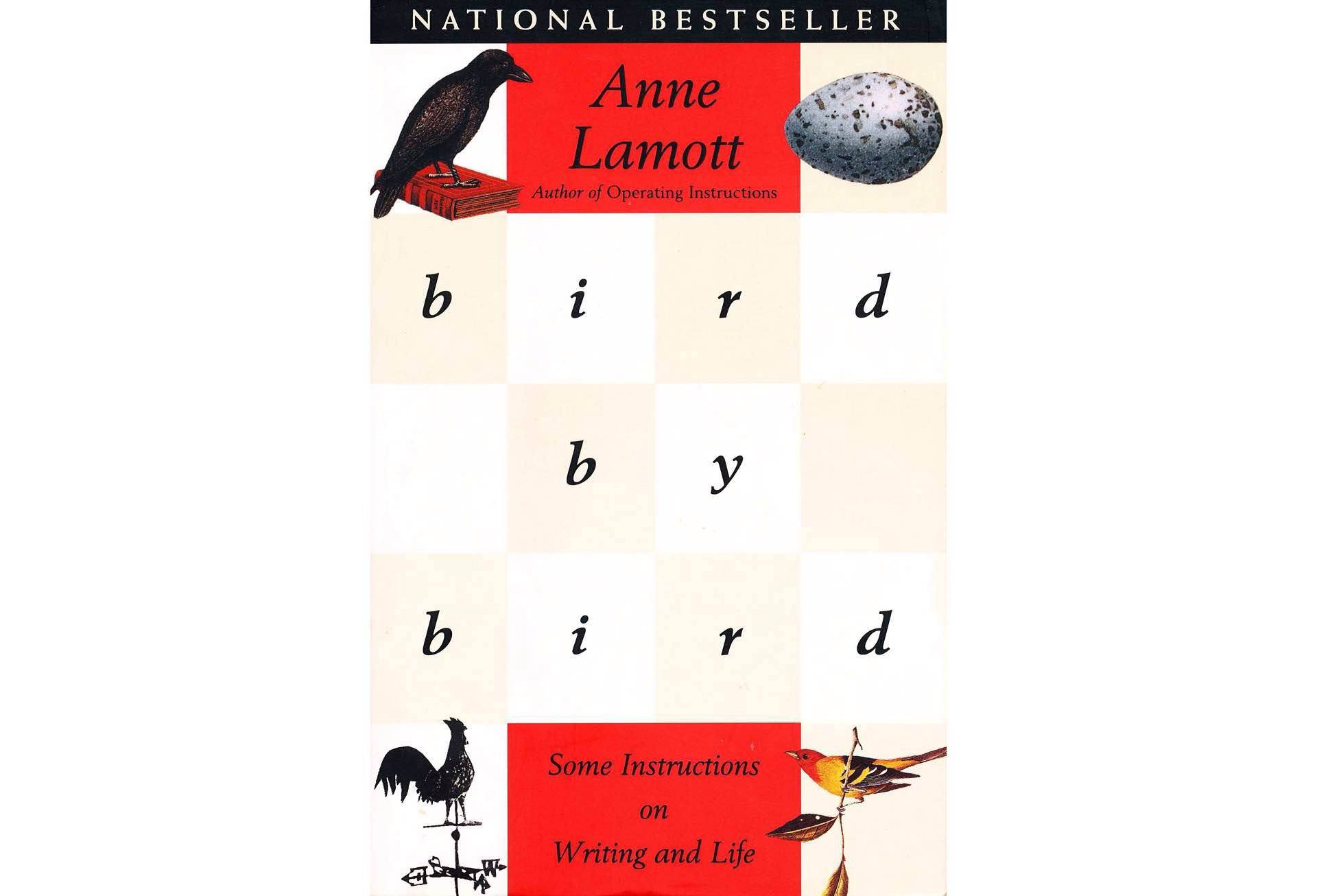
Bird by Bird: Some Instructions on Writing and Life by Anne Lamott.
Bird by Bird by Anne Lamott »
Ever heard the term “crappy first draft”? Many writers will tell you how important it is to give your first drafts permission to utterly stink — to get ideas out of your head and onto the page as soon as possible. Iteration comes later.
I’m not sure if Anne Lamott’s 1995 book, Bird by Bird: Some Instructions on Writing and Life, was the originator of the idea but it sure did popularize it:
For me and most of the other writers I know, writing is not rapturous. In fact, the only way I can get anything written at all is to write really, really sh***y first drafts. The first draft is the child’s draft, where you let it all pour out and then let it romp all over the place, knowing that no one is going to see it and that you can shape it later. […]
Almost all good writing begins with terrible first efforts. You need to start somewhere. Start by getting something—anything—down on paper.
More than writing though, this witty book is all about tackling life’s problems, struggling with inner demons, facing hard truths, and most importantly, learning to plug away at your work whether or not you think it’s any good.
- Paperback ($10)
- Kindle format ($12)
- iBooks format ($12)
- Audiobook (digital) ($17)
- Audiobook (CD) ($14)
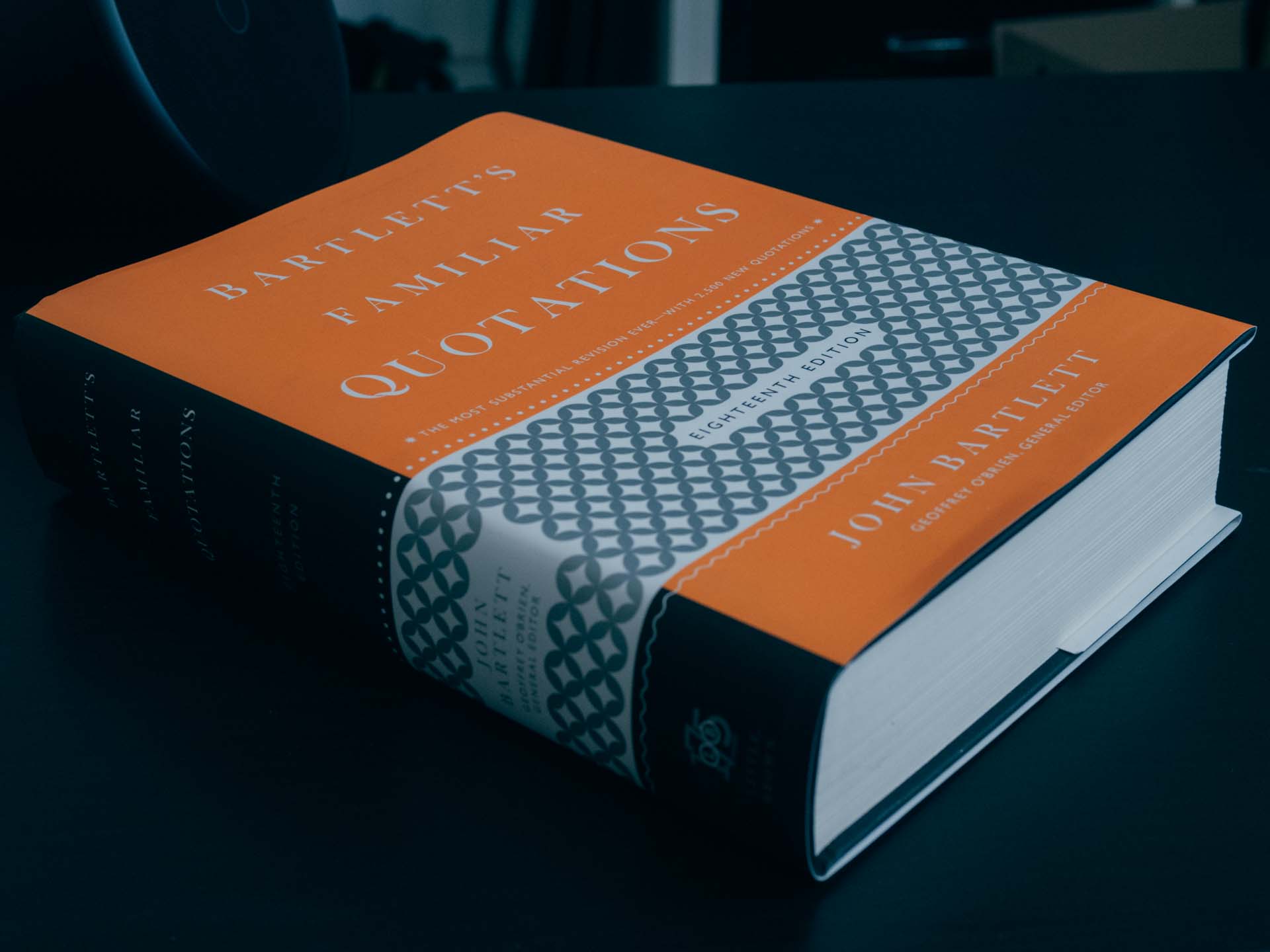
Bartlett’s Familiar Quotations, Eighteenth Edition by John Bartlett, edited by Geoffrey O’Brien.
Bartlett’s Familiar Quotations »
Whatever your writing skill level, at times you will simply feel uninspired. There’s no getting around that fact. In these times, a bit of fresh perspective can be just the thing to jumpstart your mind and get you back to writing.
My recommendation is Bartlett’s Familiar Quotations, which is jam-packed with interesting, inspirational, and memorable quotes. Open to any random page and you will be serendipitously treated to a wonderful nugget of wisdom or inspiration.
As one Amazon reviewer notes, the book is also handy for fact-checking badly-attributed quotes on the internet (we’ve all seen them):
As a speechwriter, I’m asked to include quotes from noteworthy people. Invariably, my clients see something on Facebook and are convinced it is accurate. It might be, but we all know Albert Einstein didn’t say everything attributed to him. […]
Among the things Bartlett’s does better than some former Star Trek star posting quotable memes on social media is that these are vetted. They are sourced. You know who really said them. Don’t speak at a fundraiser and say, “J. K. Rowling said…” when, in fact, it was actually in the Bible, Shakespeare or Bob Dylan. Bartlett’s will help you there.
The first edition of this book was compiled by John Bartlett in 1855 and was a mere 258 pages thick. Today, the 18th edition weighs in at 1,500 pages and is better than ever. It’s an excellent gift for the curious, the discerning, the learned, the bored, or all of the above. And of course, it makes for a great reference when writing, or for great reading on a lazy afternoon. You’ll come away inspired either way.
- Hardcover ($30)
- Kindle format ($20)
- iBooks format ($20)
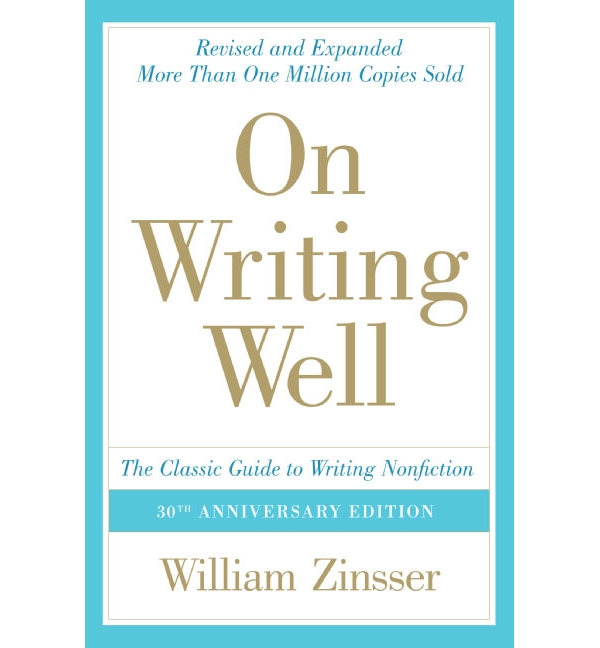
On Writing Well, 30th Anniversary Edition: The Classic Guide to Writing Nonfiction by William Zinsser.
On Writing Well by William Zinsser »
William Zinsser’s On Writing Well — much like Stephen King’s On Writing and Strunk & White’s The Elements of Style — is one of those books often recommended, sooner or later, to writers of all levels. And for good reason.
Mr. Zinsser worked in the writing business for nearly 70 years before passing away earlier this year. He taught classes and workshops, worked as a journalist, and authored nearly 20 books on a variety of topics. When he gave writing advice it was always best to listen up (and still is). On Writing Well is chock-full of precisely such advice.
Where the aforementioned Elements of Style comes across as dry and stuffy, On Writing Well is warm and inviting. Sure, Zinsser provides some concrete rules to abide by, but he also admits it’s okay for an experienced writer to break them sometimes.
- Paperback ($10)
- Kindle format ($10)
- iBooks format ($10)
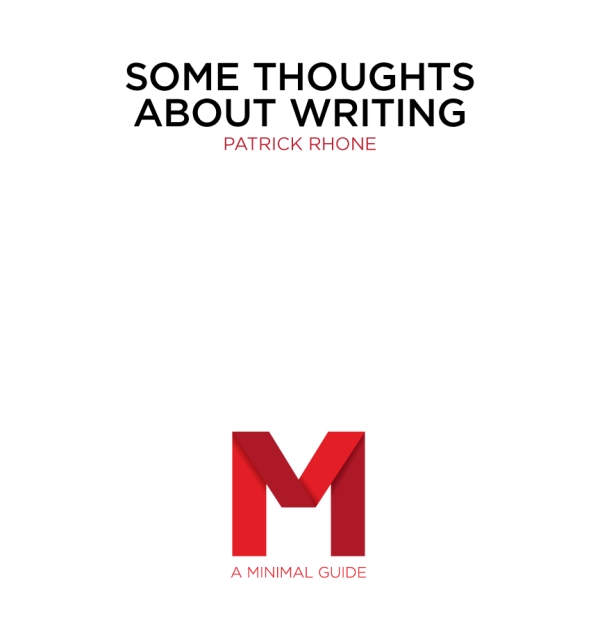
Some Thoughts About Writing by Patrick Rhone.
Some Thoughts About Writing by Patrick Rhone »
This book, in the author’s own words, is a “collection of back pocket wisdom for those who wish to be successful writers.” I can’t think of a better way to describe it. It’s a short read but full of practical advice. Here is one of my favorite passages (bold emphasis mine):
OK, fine. You don’t like to write sitting. You’d rather stand like Hemingway or lay down like Capote (That’s what I’m doing right now — on my iPhone!). That’s fine. I don’t care. The point is just write. WRITE!
Look, don’t worry about what to write about. Just start writing the first thing that comes to your mind. Write about the wall color. Write about the dirt on the floor. Write about the crazy fantasy you are currently having about tracking me down and killing me in my sleep for even suggesting such insanity. I don’t care. The world does not care.
You know who should care? You. You have a hundred million stories just sitting there, inside of you, waiting to get out. How do I know? Because we all do. It’s called “living a life” and each moment is another chapter, another story. Look, it’s like this: If you don’t have a story to tell then you are not living a life worth telling stories about.
Patrick has this way of always hitting the nail squarely on the head.
- Kindle format ($5)
- DRM-free eBook ($5) — A downloadable pack including versions that work with all eReaders, such as Kindle, iBooks, and Nook. You’ll have to add them yourself, though.
](images/image48.jpg)
Zen in the Art of Writing: Essays on Creativity by Ray Bradbury.
Photo: Charmaine Clancy
Zen in the Art of Writing by Ray Bradbury »
In this book, Ray Bradbury — famed author of such works as Farhenheit 451 and The Martian Chronicles — focuses less on the nuts and bolts mechanics of writing and more on taking sheer joy in one’s work.
Every morning I jump out of bed and step on a land mine. The land mine is me. After the explosion, I spend the rest of the day putting the pieces back together. Now, it’s your turn. Jump!
Over the course of nine brilliant and exuberant essays, Bradbury covers why he decided to write as a career, his reflections on writing some of his most famous works (Farhenheit 451 being one such example) and his views on what it means to be a writer. He takes readers on the journey of discovering one’s creative self, teaches them to feed their respective muses, and encourages them to celebrate the very act of writing.
If you come away from this book not feeling like a fire has been ignited within, then I don’t know how to help you.
- Paperback ($13)